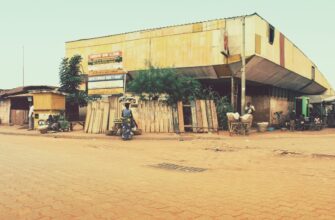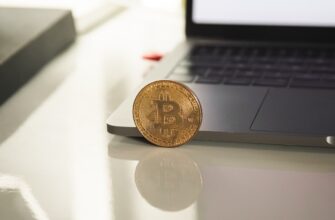Introduction
As cryptocurrency adoption accelerates globally, knowing how to sell Bitcoin in 2025 in Buenos Aires has become essential for Argentinian investors. With Argentina’s ongoing economic volatility and progressive crypto regulations, the landscape for converting BTC to pesos or other assets is evolving rapidly. This comprehensive guide covers everything from regulatory shifts to step-by-step selling methods, ensuring you navigate the 2025 Buenos Aires market safely and profitably.
Understanding Argentina’s 2025 Crypto Regulations
By 2025, Argentina’s regulatory framework for cryptocurrencies is expected to be more defined, building on 2023’s “Cryptocurrency Transparency Law.” Key developments include:
- Mandatory Exchange Registration: All platforms must register with CNV (National Securities Commission) for legal operations.
- Tax Clarity: Capital gains tax (15-20%) applies to crypto profits, with simplified reporting via AFIP.
- Peso Stabilization Efforts: Government initiatives may reduce reliance on stablecoins like USDT for conversions.
- Anti-Fraud Measures: Enhanced KYC protocols to prevent money laundering, requiring ID verification for transactions over $100 USD equivalent.
Choosing Your Selling Platform in Buenos Aires
Selecting the right method depends on speed, fees, and security. Here are top 2025 options:
- Centralized Exchanges (CEXs): Lemon Cash or Buenbit offer instant peso withdrawals to local banks. Fees: 0.5-1.5%.
- Peer-to-Peer (P2P) Marketplaces: Binance P2P or LocalBitcoins allow direct trades. Ideal for large amounts with negotiable rates.
- Crypto ATMs: 50+ machines in Buenos Aires (e.g., Bitcoin Embassy). Fast but charge 5-8% premiums.
- OTC Desks: For transactions exceeding $10,000 USD. Guaranteed liquidity via firms like CryptoMarket.
Step-by-Step Guide to Selling Bitcoin in 2025
Follow this process for seamless transactions:
- Verify Your Identity: Complete KYC on your chosen platform using your DNI or passport.
- Transfer BTC: Send Bitcoin from your wallet to the exchange’s deposit address.
- Place a Sell Order: Select market/limit order. For P2P, set your preferred price and payment method (e.g., bank transfer, Mercado Pago).
- Confirm Receipt: Once pesos arrive, withdraw to your Argentine bank account or e-wallet (Ualá, Personal Pay).
- Secure Funds: Move pesos immediately to hedge against inflation.
Safety and Security Best Practices
Protect yourself from scams in Buenos Aires’ dynamic market:
- Use exchanges with ARG regulatory compliance badges.
- Enable 2FA and whitelist withdrawal addresses.
- Verify P2P buyer/seller ratings and trade history.
- Avoid public Wi-Fi for transactions; employ VPNs.
- Store only operational funds on exchanges—use hardware wallets like Trezor for long-term holdings.
Tax Implications for Argentine Crypto Sellers
In 2025, selling Bitcoin triggers these tax obligations:
- Ganancias (Income Tax): 15% on profits if held under 1 year; 5-15% if held longer based on income bracket.
- Bienes Personales (Wealth Tax): Applies if global assets exceed ~$170K USD annually.
- Reporting: Declare transactions via AFIP’s “Fórmulario 816” monthly. Use tools like Koinly for automated tracking.
- Penalties: Undeclared sales risk fines up to 200% of owed tax + legal action.
Frequently Asked Questions
Q1: Can I sell Bitcoin for cash in Buenos Aires?
A: Yes, via P2P meetups or ATMs—but exercise extreme caution. Use public spaces and verify bills to avoid counterfeits.
Q2: What’s the fastest way to get pesos?
A: Centralized exchanges like Lemon Cash process withdrawals in under 10 minutes during business hours.
Q3: Are there daily selling limits?
A: Most exchanges cap at $5K USD/day unverified. Higher limits require enhanced KYC.
Q4: How do I avoid high fees?
A: Compare platforms—P2P often has lower fees (0.1-0.5%) than ATMs. Time sales during low network congestion to reduce BTC transaction costs.
Q5: Is Bitcoin legal in Argentina in 2025?
A: Absolutely. Argentina recognizes crypto as a legitimate asset class, though strict regulations govern exchanges.
Q6: What if the buyer doesn’t pay after a P2P trade?
A: Escrow services on platforms like Binance freeze BTC until payment confirmation. Dispute resolution takes 24-48 hours.








